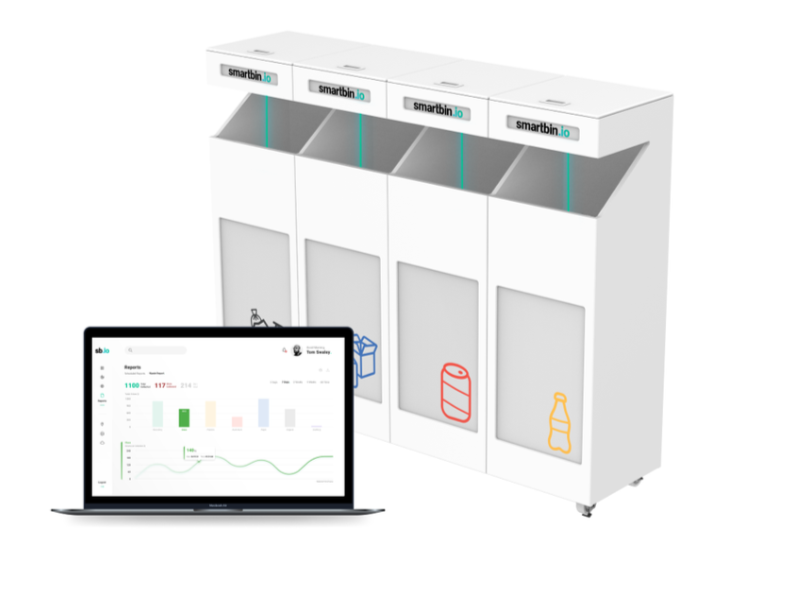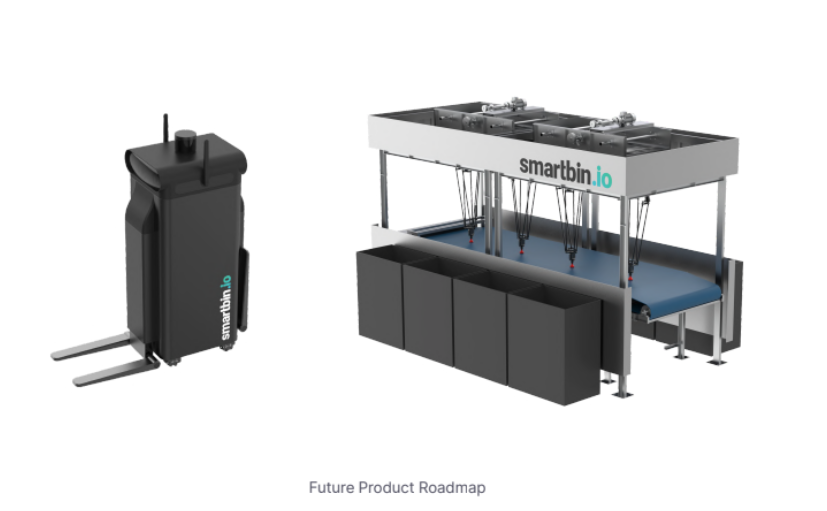Smartbin.io is a smart waste receptacle that can be used to optimize waste collection and collect data for sustainability programs.
Recycling is confusing. There is a great diversity of ‘recyclable’ symbols and regional variation in terms of what is actually recyclable. In fact, items that can be recycled in one municipality, might not be permitted in a neighboring city. As a result, many consumers do not fully understand what they can and cannot recycle. Even though up to 75% of waste can be recycled, only 34% of products actually end up getting recycled. To break this down further, global recycling rates hover around:
- 9% of plastic,
- 32% of metal,
- 31% of glass, and
- 68% of paper products 1.
Clearly, there is lots of potential to improve and maximize our recycling rates at both a global and local level.
Collection inefficiency, with bins being emptied too often or not often enough, is another challenge faced by the waste management industry. Labor shortages, especially at retail and other businesses, also have contributed to issues around waste collection inefficiency. This causes many negative impacts, including additional cost, limited resource recovery, and waste contamination into the environment2. Furthermore, it can be an additional drain on already stretched labor resources.
Consumer education around recycling does help, but it hasn’t achieved the full behavior change needed to make recycling successful. Plus, education doesn’t fully address waste management needs like predicting waste or creating a perfect removal schedule. How can we improve upon this?

Smartbin.io is a smart waste and recycle bin made from 97% recycled HTPE that is built for commercial buildings. What makes it smart? A sensor, called a LidBot, is placed in the top of the bin which detects how full the bin is and sends this data to the cloud. This data can be used by businesses to optimize collection schedules or to collect waste on-demand. This greatly benefits workers by improving their efficiency and reducing their workloads, as bins are only collected when they are full. Optimized collection also greatly reduces the monetary and environmental costs associated with waste collection.
The data that Smartbin.io collects is very valuable and can be used for purposes beyond collection optimization. For example, this data can be used by sustainability teams for ESG reports, sustainability targets, and increased transparency around waste initiatives all in real time. These data metrics can be used to inform and improve corporate sustainability goals particularity because the data granularity helps teams track specific sites and areas. Smartbin.io is currently being implemented by large commercial property management and janitorial service providers to lower collection costs and gather essential data for ESG reports and sustainability initiatives.

What’s ahead for Smartbin.io? The company is developing a bin collection robot and automated recycling sorting machine. The bin collecting robot will automatically gather and empty bins at capacity, while also collecting data on their weight. The recycling sorting machine automatically sorts waste into different categories to prepare for disposal, increasing the quality of recyclable materials. Smartbin.io sees this as a crucial step for enabling the circular economy with more materials destined for recycling and reuse.
To learn more about Smartbin.io, watch the company presentation at our Understory Showcase here: Understory’s ‘Startups Driving Sustainability’ September 2021 Showcase Event
[1] Greenmatters, What Percentage of Recycling Actually Gets Recycled? March 16, 2021.
[2] Waster.com.au, Inefficient Waste Management.







Join the conversation.